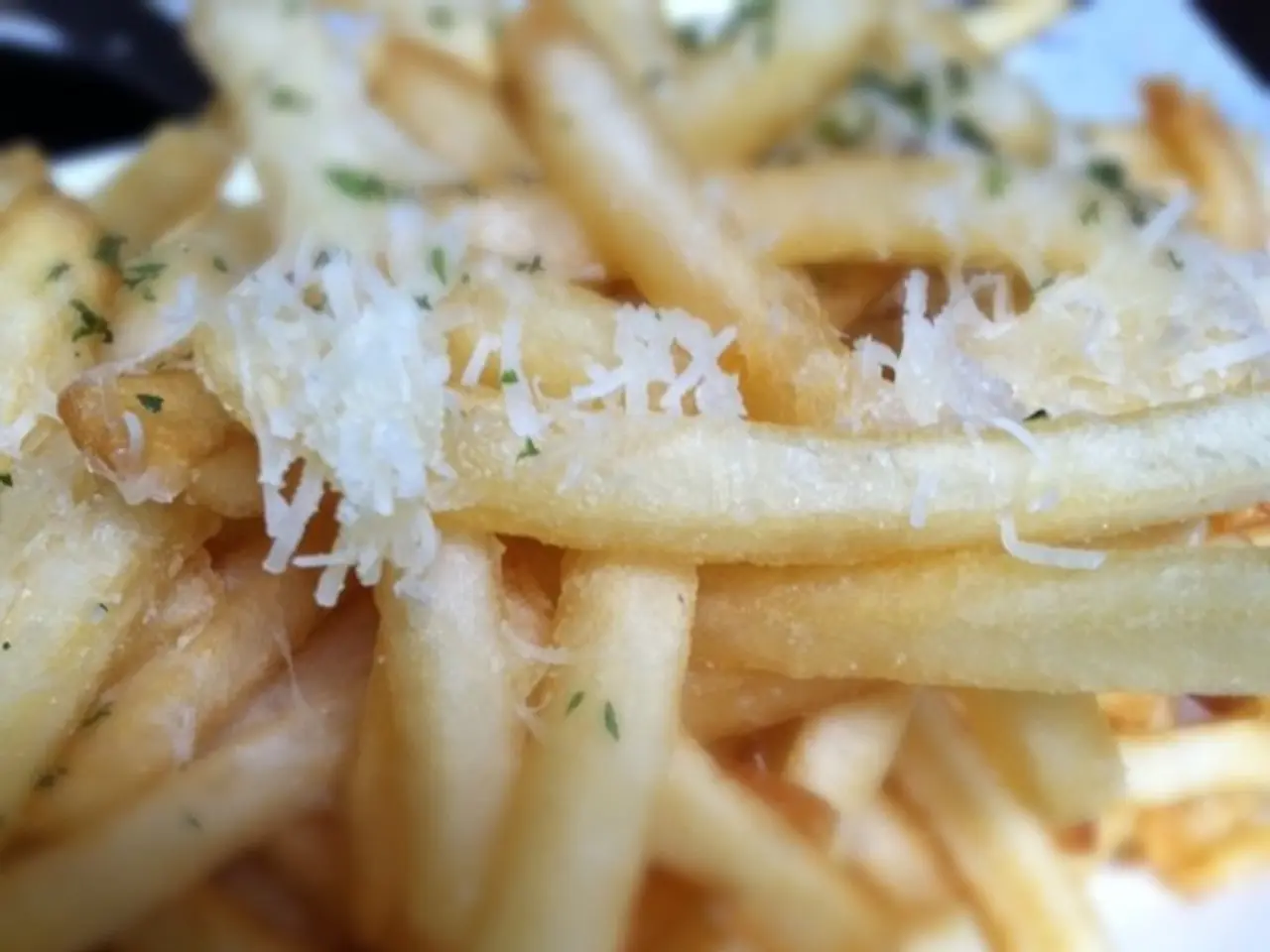Prohibition of Bringing Meat and Dairy Items: European Travelers Restricted from Entering UK with These Items
In recent news, the British government has implemented stringent measures to prevent the spread of foot-and-mouth disease (FMD) within the country. This follows a series of outbreaks across European countries, marking the first instance of the disease in an EU country for several years, as well as the first in Germany since 1988.
The outbreak in 2001 was estimated to have cost Great Britain more than £8 billion. To avoid a similar scenario, the government has imposed a ban on dairy produce and meat products from cattle, sheep, pigs, goats, and their related products. This ban applies to fresh meat, sandwiches, cheeses, cured meats, raw meats, regardless of whether they are packed or packaged.
The restrictions apply only to travellers arriving in Great Britain and will not be enforced in Northern Ireland, Jersey, Guernsey, or the Isle of Man. Anyone found with these prohibited items will either need to surrender them at the border or have them seized and destroyed. Those found in serious cases may face fines of up to £5,000.
In response to the rise in FMD cases across Europe, Britain has added related products from Hungary, Slovakia, and Austria to the restricted list. However, there are exemptions to these rules. Infant milk, medical foods, and certain low-risk composite products, including chocolate, confectionery, bread, cakes, biscuits, pasta, and food supplements containing less than 20% animal products, are excluded from the ban.
Additionally, due to African Swine Fever (ASF) concerns, personal imports of pork and pork products from the EU are limited to 2 kg of commercially produced and labelled goods, ensuring they meet EU commercial standards.
The Farming Minister, Daniel Zeichner, stated that the government will do whatever it takes to protect British farmers from FMD. Since the outbreak in 2007, more than 2,000 animals were culled to control FMD in the UK. It is worth noting that FMD does not pose a risk to humans, and infected meat and milk are considered safe to consume.
These measures are subject to change and are currently in effect from 25 June 2025 until further notice. In January, the UK government introduced bans on imports of cattle, sheep, other ruminants, pig meat, and dairy products from Germany in response to an outbreak of FMD in water buffalo at a farm outside Berlin.
[1] GOV.UK. (2021). Check if you can bring food and plant products into the UK. Retrieved from https://www.gov.uk/guidance/check-a-plant-health-certificate-for-importing-food-and-plant-products
[2] GOV.UK. (2021). Check if you can bring food and plant products into the UK. Retrieved from https://www.gov.uk/guidance/check-a-plant-health-certificate-for-importing-food-and-plant-products
[3] GOV.UK. (2021). Check if you can bring food and plant products into the UK. Retrieved from https://www.gov.uk/guidance/check-a-plant-health-certificate-for-importing-food-and-plant-products
- Travellers entering Great Britain are advised to avoid food-and-drink items made from cattle, sheep, pigs, goats, or their related products due to the ongoing foot-and-mouth disease (FMD) restrictions.
- Despite the ban on many food products, certain exempted items such as infant milk, medical foods, chocolate, confectionery, bread, cakes, biscuits, pasta, cakes, and low-risk composite products are allowed to be brought into the country, according to the government's guidelines.




